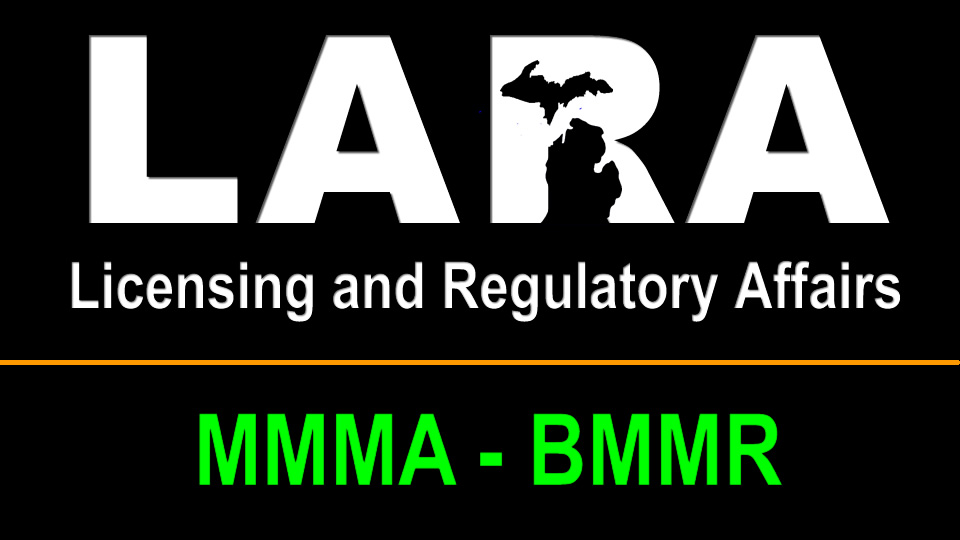
LARA-MMFLA-How does the application process work
How does the application process work and who can apply for a license?
Anyone — individual or business — who feels that they can satisfy statutory and administrative rule requirements for a marihuana facility license may apply for a license. BMMR will begin accepting applications on December 15, 2017. There is no deadline to complete the application process.
On December 15, 2017, LARA will begin accepting online or paper form applications, utilizing a two-step application process for medical marihuana facility licensing:
- Pre-Qualification
- License Qualification
This two-step process will allow applicants to begin the application process by completing step one before a location for the medical marihuana facility is established. If applicants have a location secured, they will have the option of submitting step one and step two materials at the same time.
Step One – Pre-Qualification
The first step is Pre-Qualification which includes a full background check of the applicant and all supplemental applicants. This includes – but is not limited to – individuals or businesses with an ownership interest (direct or indirect) in the applicant. As part of the Pre-Qualification (step one), applicants must disclose those individuals and businesses with an indirect or direct ownership interest. Applicants should refer to Sections 401 and 404 of the MMFLA to determine which individuals or businesses must be included in the disclosure.
Before an applicant’s Pre-Qualification (step one) materials can be reviewed, the applicant must pay the $6000 application fee. Until the $6000 application fee is paid, BMMR will not be able to process the application. After the application is processed, BMMR will notify applicants and supplemental applicants when and where fingerprints will be collected. Local law enforcement agencies will not collect fingerprints for BMMR and BMMR will not accept fingerprint reports completed by applicants before the applicants are instructed to have their fingerprints collected.
Pre-Qualification (step one) may be completed before an applicant has a physical location for its business.
Step Two – License Qualification
The second step is the License Qualification. If applicants have a location secured, they will have the option of submitting step one and step two materials at the same time. License Qualification requires information specific to the physical location of the applicant’s business. An applicant cannot be issued a license until all requirements in the MMFLA and administrative rules are met.
Under Section 205 of the MMFLA, the Department cannot issue a license to a facility intending to operate in a municipality unless the municipality has enacted an ordinance authorizing marihuana facilities to operate within the municipal boundaries. An applicant’s physical location will need to be located in a municipality with an ordinance compliant with Section 205 requirements. Any questions about municipal ordinances should be directed toward the appropriate municipal authority.
While an application is being processed, staff of BMMR will be in communication with applicants regarding additional requirements in statute or administrative rule, including pre-licensure investigation.
After notification of License Qualification (step two) approval from BMMR, an applicant will need to pay a regulatory assessment for each license the applicant is issued.
Grower A license regulatory assessments are capped, by statute, at $10,000. The regulatory assessment for Grower B-C, Processor, Transporter, and Provisioning Center licenses will be dependent on the number of total licenses subject to assessment and could be as low as $10,000 or as high as $57,000. The exact amount of the regulatory assessment is not available at this time. There is no regulatory assessment for Safety Compliance Facilities.
